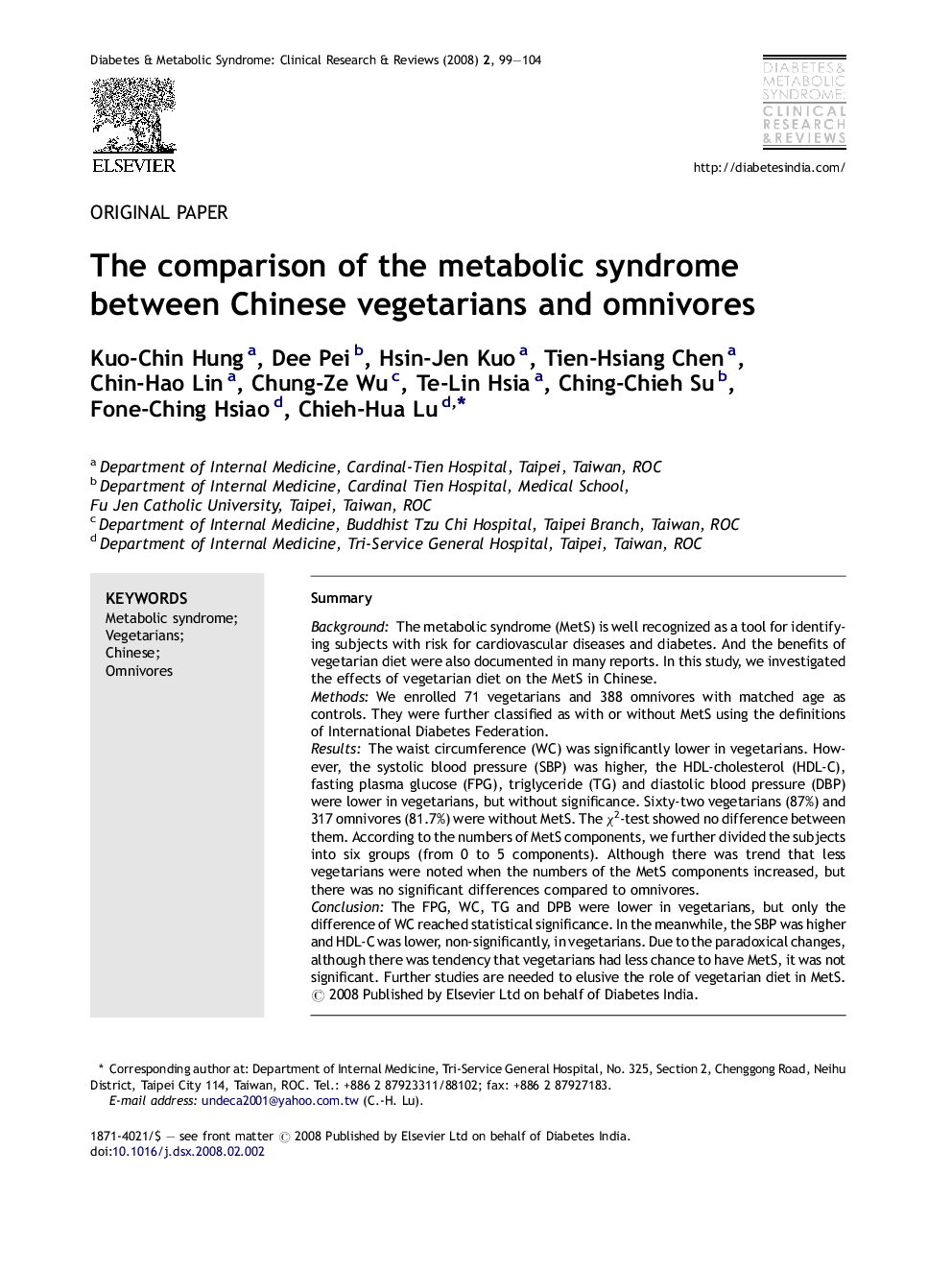| Article ID | Journal | Published Year | Pages | File Type |
|---|---|---|---|---|
| 2910386 | Diabetes & Metabolic Syndrome: Clinical Research & Reviews | 2008 | 6 Pages |
SummaryBackgroundThe metabolic syndrome (MetS) is well recognized as a tool for identifying subjects with risk for cardiovascular diseases and diabetes. And the benefits of vegetarian diet were also documented in many reports. In this study, we investigated the effects of vegetarian diet on the MetS in Chinese.MethodsWe enrolled 71 vegetarians and 388 omnivores with matched age as controls. They were further classified as with or without MetS using the definitions of International Diabetes Federation.ResultsThe waist circumference (WC) was significantly lower in vegetarians. However, the systolic blood pressure (SBP) was higher, the HDL-cholesterol (HDL-C), fasting plasma glucose (FPG), triglyceride (TG) and diastolic blood pressure (DBP) were lower in vegetarians, but without significance. Sixty-two vegetarians (87%) and 317 omnivores (81.7%) were without MetS. The χ2-test showed no difference between them. According to the numbers of MetS components, we further divided the subjects into six groups (from 0 to 5 components). Although there was trend that less vegetarians were noted when the numbers of the MetS components increased, but there was no significant differences compared to omnivores.ConclusionThe FPG, WC, TG and DPB were lower in vegetarians, but only the difference of WC reached statistical significance. In the meanwhile, the SBP was higher and HDL-C was lower, non-significantly, in vegetarians. Due to the paradoxical changes, although there was tendency that vegetarians had less chance to have MetS, it was not significant. Further studies are needed to elusive the role of vegetarian diet in MetS.
